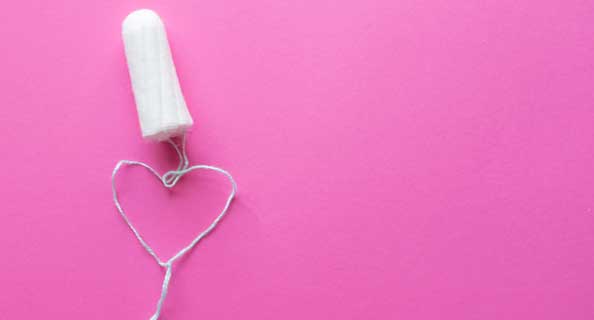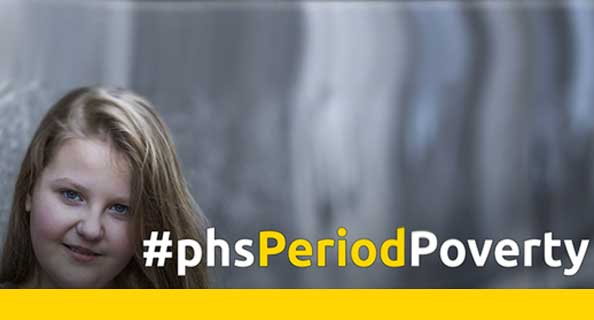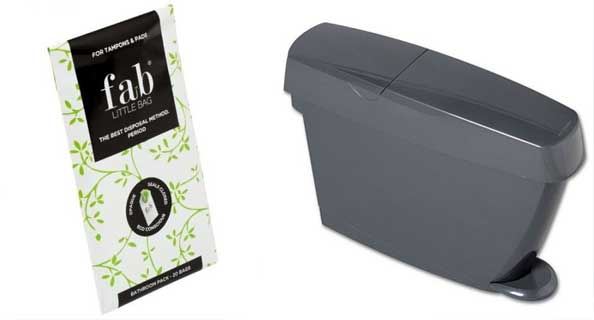Period Poverty is about more than cost. Women and girls all around the towns and cities we live in are finding themselves unable to afford essential sanitary products.
In this article, we explore the changes being made to stamp down this issue and address this troubling problem that has no place in modern society.
Free Sanitary Products in Welsh Schools

A recent announcement made by the Welsh Education minister Kirsty Williams is the news that schools and colleges around Wales will have sanitary products free of charge.
The nearly £3 million budget put into this scheme, will go towards those in Education being able to provide its learners with environmentally and sustainable sanitary products.
However, the announcement doesn’t mention universities which beg the question.
Do Universities have a duty of care when it comes to providing feminine hygiene?
Period poverty doesn’t affect just younger girls who don’t have a job to pay for sanitary products. Even students have to pick and choose how to spend their student loans: food or feminine hygiene. Plan International suggested that 40% of girls use toilet roll as an alternative to sanitary products.
One student spent her loans on providing free tampons around her University in Bristol, which after seeing her campaign, they agreed to follow suit and give them out for free. While there are only a small number of universities who are using this policy, it’s a step forward in the right direction.
It’s not just government or activists who are making waves; there’s one UK company making strides towards ending period poverty.
PHS Period Poverty

PHS, a household name when it comes to businesses nationwide conducted their own independent research into period poverty.
PHS asked one thousand teenage girls across the UK about their experiences and opinions to do with period poverty. The results of this research discovered the following eye-opening findings:
- 48% feel let down by not enough being done to prevent period poverty.
- 46% believe period poverty holds girls back from attending school
- 30% are held back by period poverty, pulling them back from achieving their aspirations.
- 8% believe that missing school because of the lack of sanitary products is the most significant barrier facing girls at school.
To go along with their findings, PHS has launched “PHS Period Poverty”, an initiative designed to raise awareness of the scale if period poverty in the UK.
With much-needed attention drawn to such an important issue, this is a perfect opportunity for your business to adopt a forward-thinking role when it comes to your female workers.
The Two-Step Process To Sanitary Waste Disposal
First Step: Right Product
Stay ahead of the competition by making your business more inclusive. By offering free sanitary products, you’ll find the niche to keeping quality female employees and attracting new workers. The best option to go for is with FabLittleBag ™.
Fablittlebags were invented and designed to prevent sanitary products from clogging up water systems and a clean, simple solution to sanitary disposal. These nifty items are opaque, sealable and biodegradable, meaning there’s no awkwardness or shame from using toilet roll and flushing away. Just place the used tampon in the fab little bag and put it in the sanitary bin.
In landfill FabLittleBag biodegrades within 18-36 months, this is faster than the used materials inside the bags, which may take many tens of years to degrade. The materials used to make the bags help this process – sugar cane waste and a biodegradable agent cause the bits inside to breakdown and successfully biodegrade within the landfill site.
You’ll not only be helping your staff but the environment too!
Second Step: Right Bin
You’ll need a timely and reliable service now once; you’ve purchased your fab little bags. At Direct365, we’re experts when it comes to sanitary waste disposal, fitting the right bin schedule to the requirements of your business.
Keeping on top of your sanitary waste isn’t just for convenience sake, it’s the law. The Controlled Waste Regulations 2012 cover anything that’s considered unpleasant or would cause offence. That includes used feminine products.
We take the discreet task of collecting and disposing of your waste and leaving you a fresh bin liner with each visit. Convenience and comfort, let us take care of it for you.
Update: We’ve been recently contacted by Compassion UK, a charity organisation that shares common interests on the subject of period poverty.
You can read about their work and how Ugandan dads are fighting period poverty in this article: Click Here


